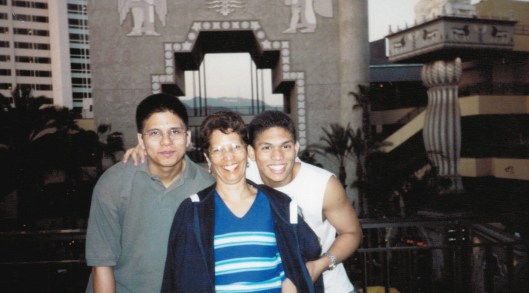Tags
Cascavel/Ceará, Export Department, Export team, Finance Department, leather factory, Work relations
 Export Team with Visiting Client
Export Team with Visiting Client
In the rear: Window overlooking leather factory
Cascavel – Ceará – July 2001
When I joined the Export Department at Italbras Leather Producer & Exporter,* I was the oldest woman on the team. The much younger and well-qualified Brazilian export manager put me to shame. She was fluent in three languages: her native language Portuguese, English, and Italian. What’s more, she was adept at navigating the factory’s electronic system for control of production and shipments.
After experiencing the vulnerability of MS Excel spreadsheets for controlling foreign exchange contracts and payment receipts, I proposed the development of a program specific to our needs. Fernando*, the handsome, young newcomer to the Finance Department, was assigned the task. To facilitate collaboration, his desk was aligned with mine, facing each other. His presence unsettled my female co-workers.
“Watch out, Rose. He’s after your job,” one said.
“He even listens to your phone conversations with the banks,” another added.
“Don’t teach him everything.”
How could he develop the program if I didn’t explain every small detail to him? Italbras was a year-old company preparing to take off. Now was the time to put sound systems in place for increased performance and accuracy. If Administration intended to hand over my work to Fernando, they must have other plans for me. I hoped.
Be part of the solution, I told myself. Don’t create any problems for Fernando. Perhaps I was being naïve.
Weeks later, when the Finance Department was moved to a large spacious office on the top floor of the Administrative Building, Fernando and I joined them. Oh, blessed reprieve! No more noise of rumbling drums and battering machines. At last, I could think straight.
In the beginning, the export manager forwarded clients’ payment details by e-mail. Soon thereafter, Mr. Leonelli,* our Italian Commercial Director, instructed all clients to forward payment details directly to my e-mail address. With the addition of new clients and increased exports, I began working with several banks in Fortaleza and São Paulo. When Fernando completed each phase of the program (Access), I tested it for errors.
At lunchtime, I joined my import-export co-workers in the company’s dining hall, located on the first floor of the Administrative Building. All was well between us.
Then the bomb fell. A Friday afternoon. Our export manager was fired. I was summoned to an emergency departmental meeting the next day.
Why was she fired? We could only speculate. Leaving earlier that day, she did not return to Fortaleza with us on the company bus. Her qualifications, hard work, and dedication were not enough to secure her position. When we become a problem—for whatever reason, within our control or not—we lose our value to the company. It was a lesson I could not afford to forget.
At the meeting that Saturday, Mr. Leonelli formed a new three-person export team. Each one of us was directly responsible to him. On Monday morning, I handed over my workload to Fernando.
Back again to the rumbling drums.
* Fictitious name




